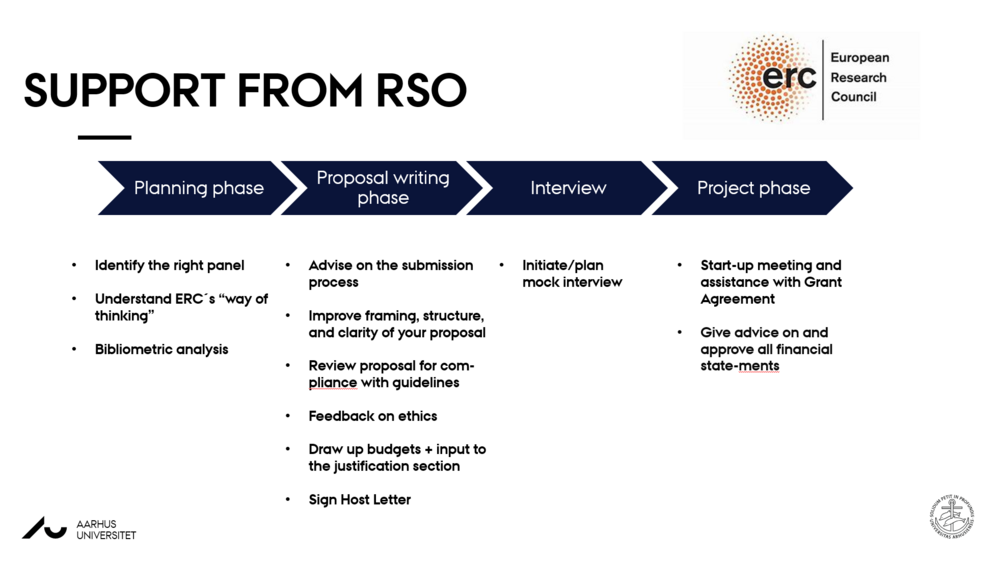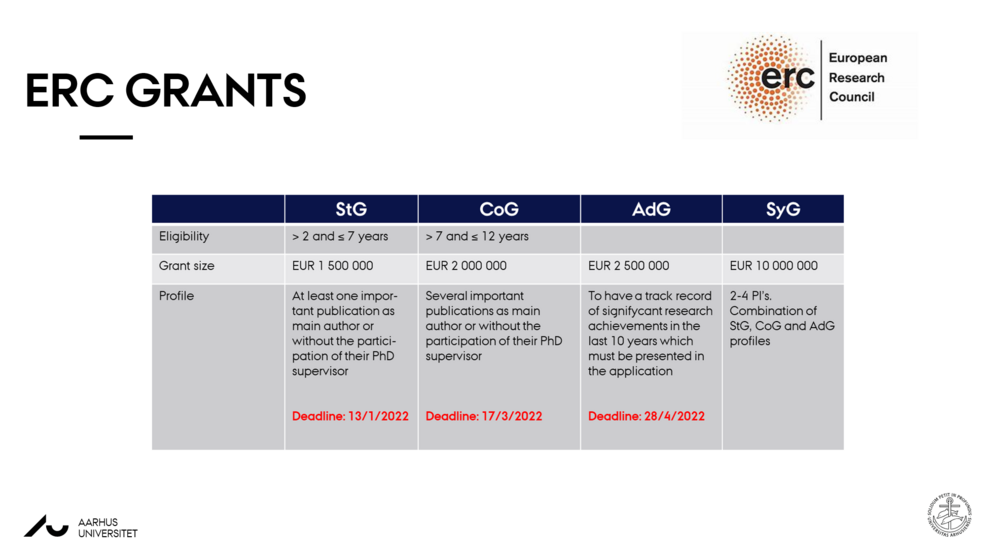- Education
-
Research
Current research
Talent
-
Collaboration
Businesses
Government agencies and institutions
Alumni
-
About AU
Organisation
Job at AU
If you are a talented researcher with a particularly interesting project, then you might get an encouraging tap on the shoulder during 2022. Health must be better to apply for – and receive – prestigious grants from the European Research Council, and Vice-dean for Research Hans Erik Bøtker has therefore launched new initiatives.
2021.12.16 |
At Health we must be even better to obtain prestigious grants from the European Research Council (ERC).
As a consequence, a new committee at each department will hold half-yearly meetings and will have the task of identifying researchers who have the potential to apply for the ERC – and also the Innovation Fund Denmark, EU clusters and Marie Curie. The participants at the meetings will be the vice-dean for research, the deputy head of department for research, and the representative from the Research Support Office who is affiliated with the department. Together, they will assess which researchers should be directly encouraged to apply for e.g. ERC Starting Grants, Consolidator Grants, Advanced Grants or Synergy Grants.
Nine ERC grants have been awarded to researchers at Health since 2014 – and according to Vice-dean for Research Hans Erik Bøtker it would be good to see this figure increase somewhat:
"Each time we receive an ERC grant at Health, which triggers a minimum of EUR 1.5 million, we also have an opportunity to carry out groundbreaking research. But there is also a great deal of prestige involved for both the researcher and for the faculty and the university, which can use the number of grants as a measure of the institution's standard," he says.
The new committees will begin meeting in the new year to identify suitable candidates at each department. Hans Erik Bøtker calls on both department heads and deputy department heads to start considering who has the talent and the project to write a qualified application in 2022.
You are always welcome to air your ideas for the committee at your department – and you can test yourself and your potential here.
Another new initiative is the recently held series of inspirational events which were intended to help and inspire researchers to apply for project funding.
At the meeting on ERC grants on 7 December, Professor Søren Riis Paludan from the Department of Biomedicine shared some good advice. Søren Riis Paludan has received an ERC Advanced Grant of DKK 18.7 million for a project ENVISION that examines how a virus evades the body's immune system, and he shared what he learned as an evaluator and member of the ERC Starting Grant panel Life Science 6, which he chaired during the period 2016-2020.
Today, he acts as an external reviewer for ERC Consolidator Grants, Advanced Grants and Synergy Grants – and he presented these six pieces of good advice:
Another participant at the same inspirational event was Professor Jacob Fog Bentzon from the Department of Clinical Medicine, and he held an instructive, personal and humorous presentation on his path through the ERC system, and one that is difficult to put into words. You should have been there, as they say – although you can read more in a previous interview here. Two years ago, Jacob Fog Bentzon received an ERC Consolidator Grant of DKK 15 million for a project that examines newly discovered functions of smooth muscle cells in connection with atherosclerosis.
Birgit Christensen from the Research Support Office rounded of the event with a clear invitation to contact her or a colleague as early in the process as possible for advice and guidance in the planning phase, including identifying the right panel, calculating the PhD.-age and more.


Source: The Research Support Office